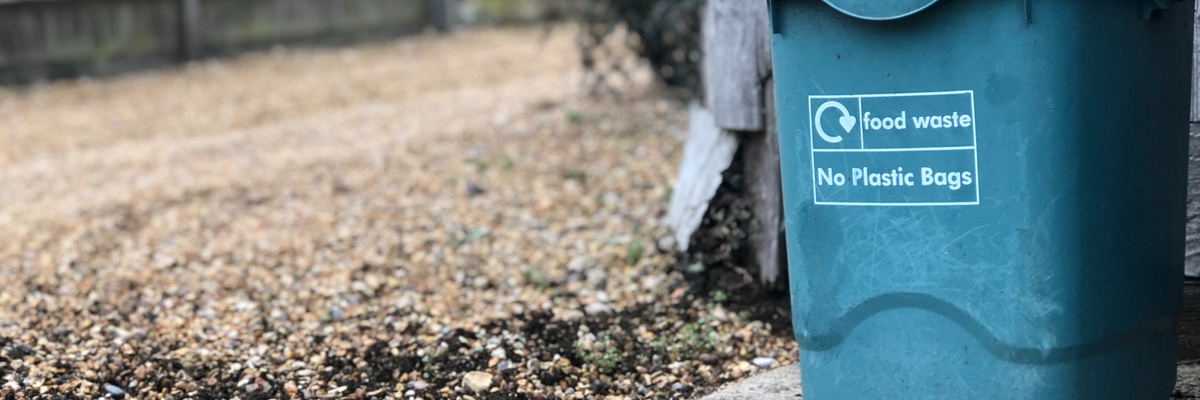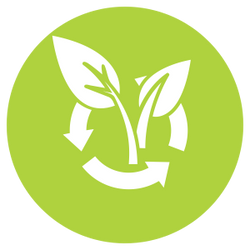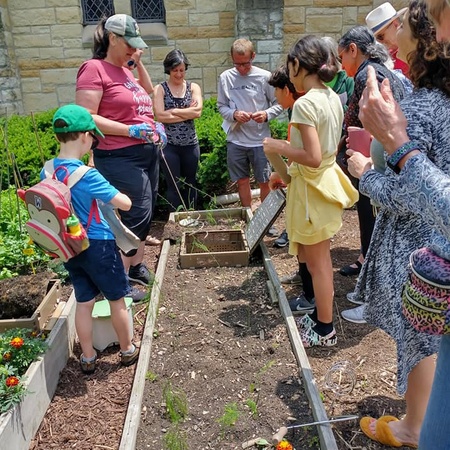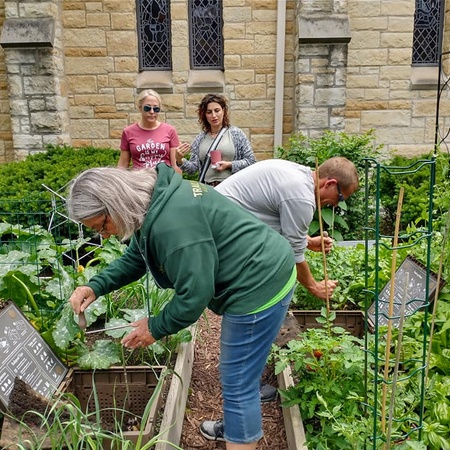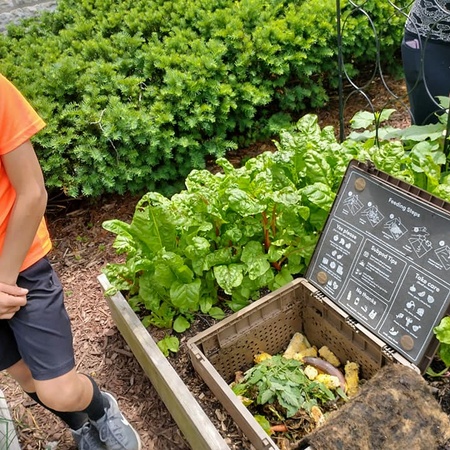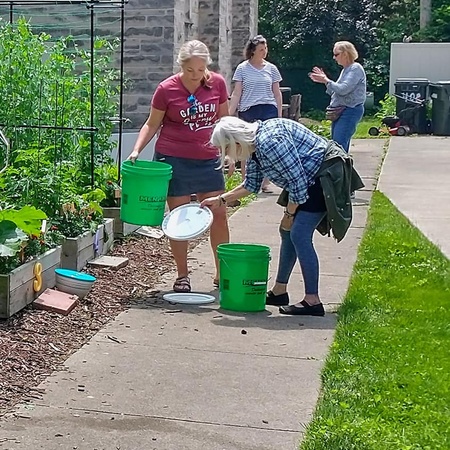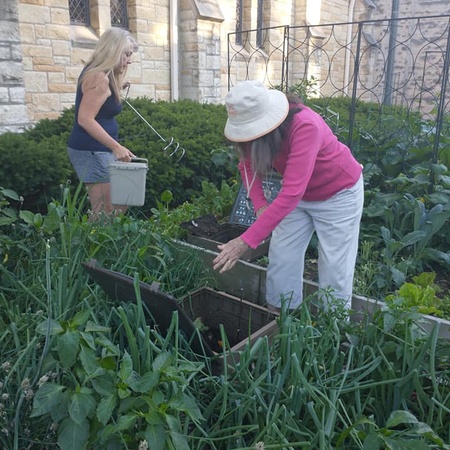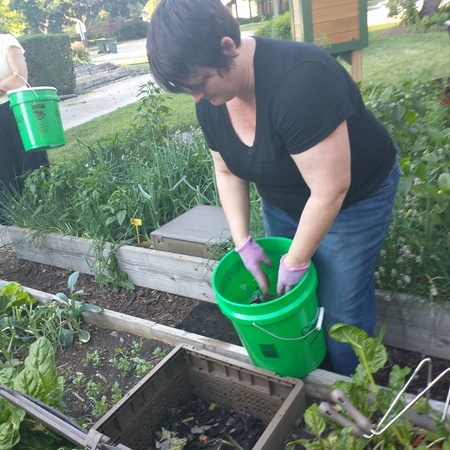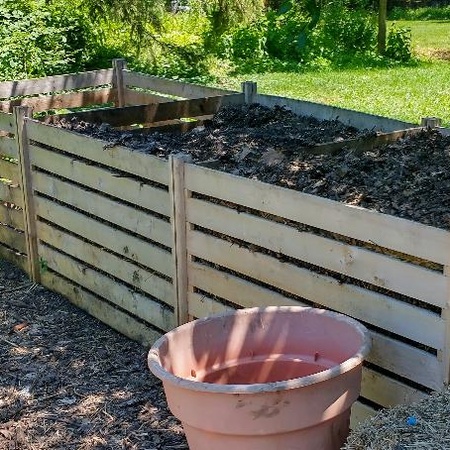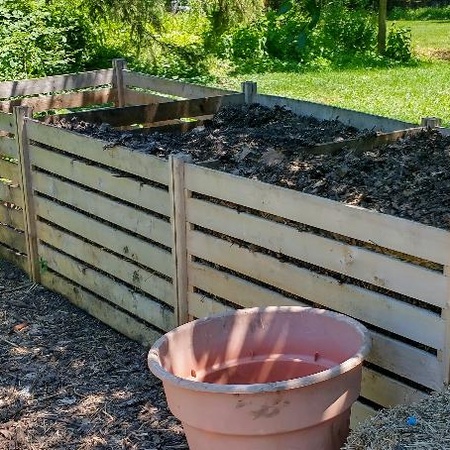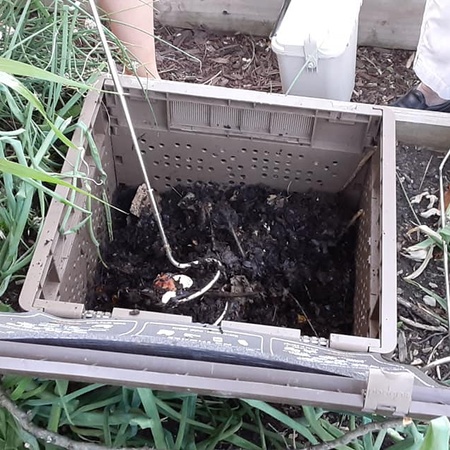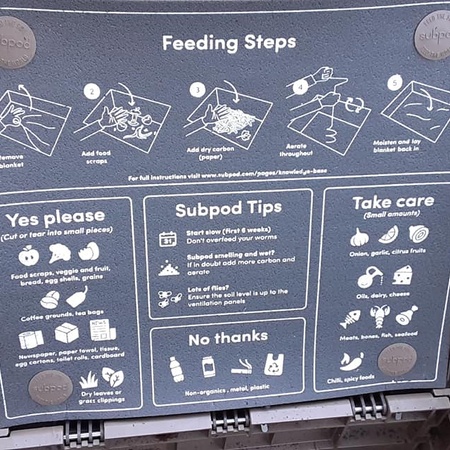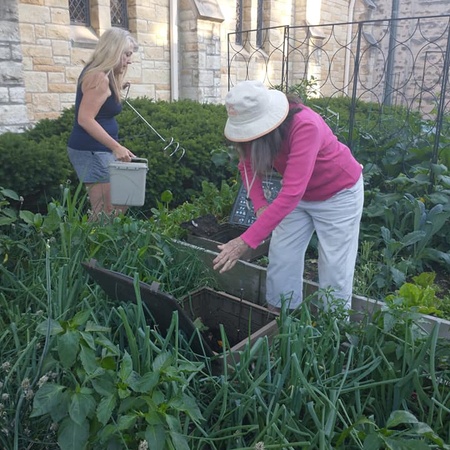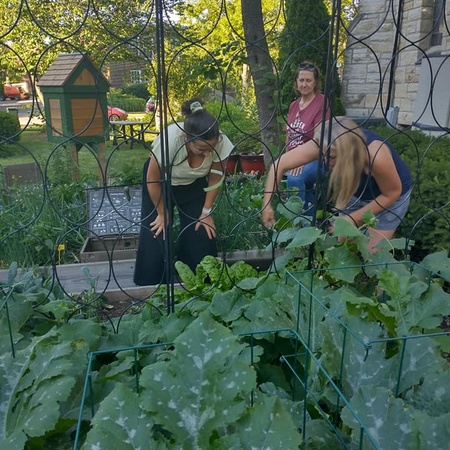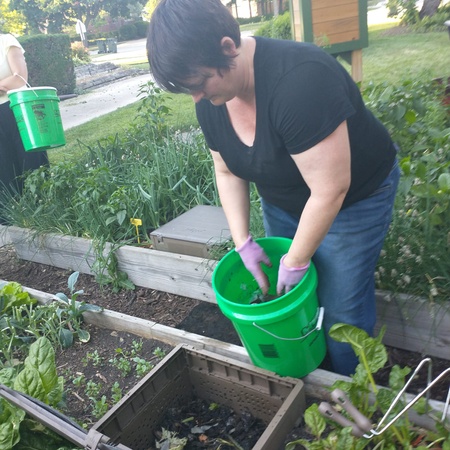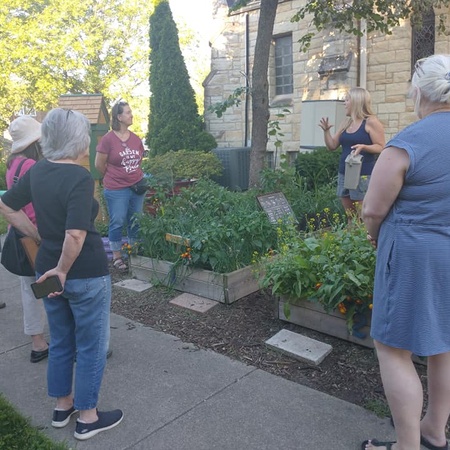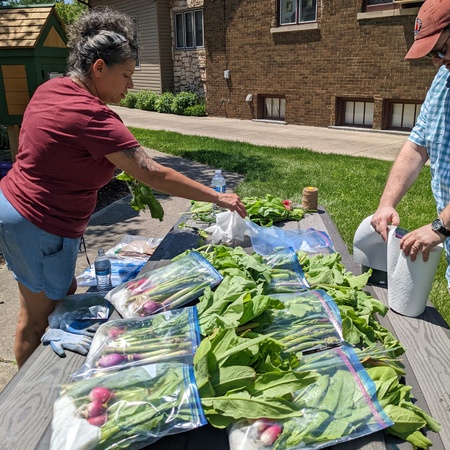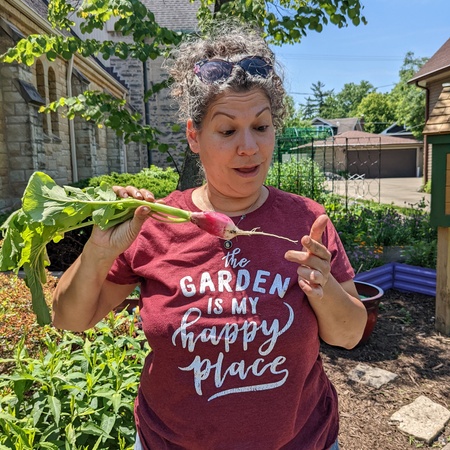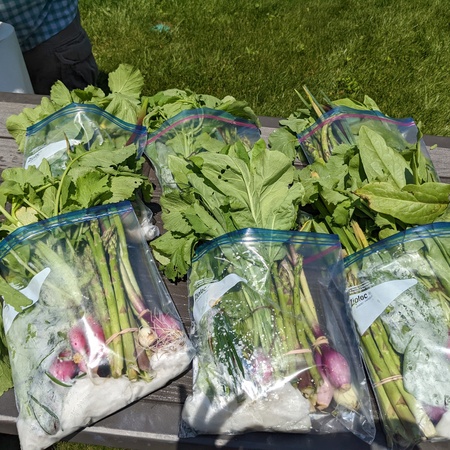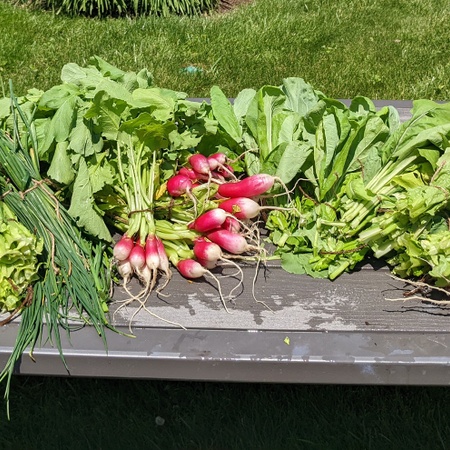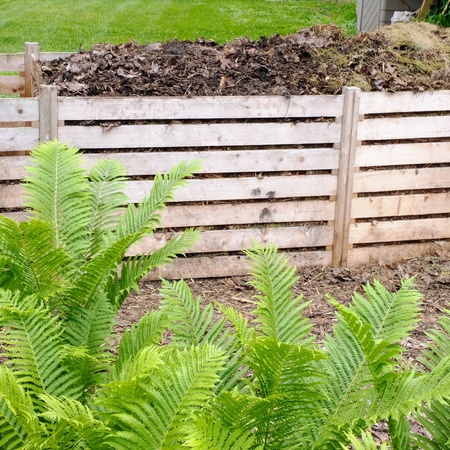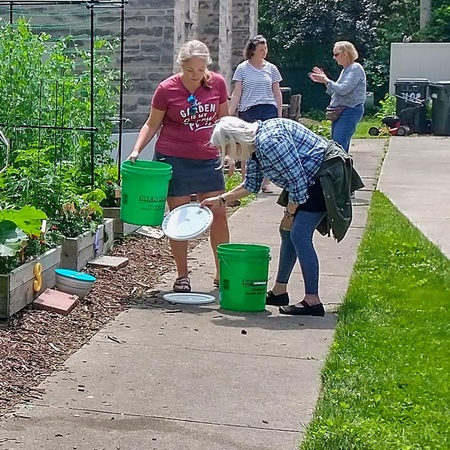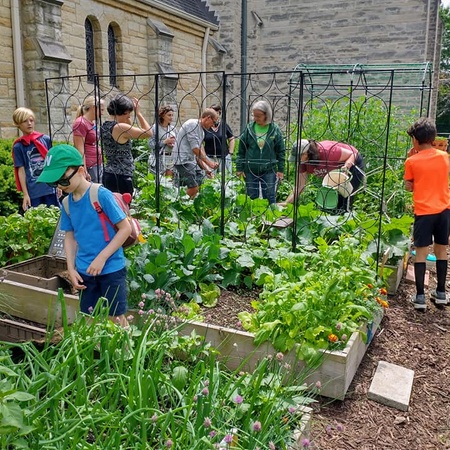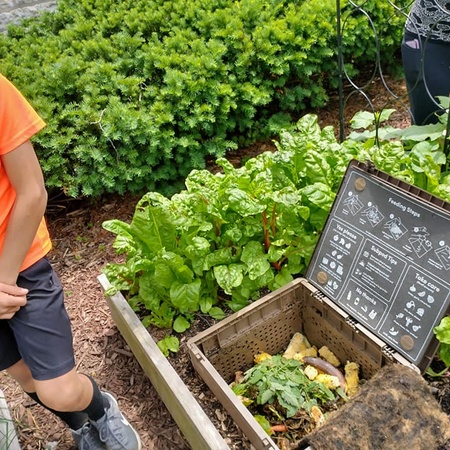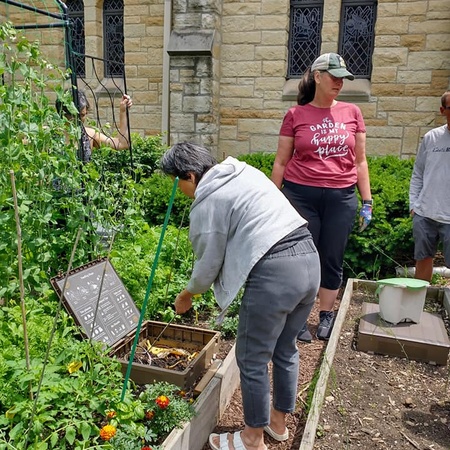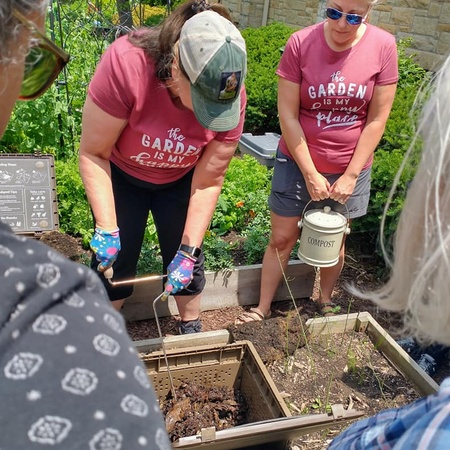COMMUNITY VERMICOMPOSTING IN SUBPODS:
- During April community volunteers installed 6 vermicompost Subpods into the raised vegetable beds in the Riverside Community Garden.
- Two volunteers Compost Managers developed a community education program and managed community participation in the program.
- Six volunteer leads, under the leadership of the Compost Managers, each managed a Subpod.
- The community composting program was publicized through social media, via the Riverside Public Library newsletter, and at the local Health and Wellness Fair.
- In collaboration with the Riverside Public Library community composting classes were offered. They were attended by over 50 participants, many of whom signed up to participate in the program.
- Inspired by this initiative, the Presbyterian Food Pantry installed their own Subpod to compost their waste onsite.
- The Presbyterian Preschool implemented composting into their daily activities and school curriculum.
- Numerous class attendees took the knowledge they gained in these classes and installed Subpods in their private vegetable gardens to process their own kitchen waste.
- It is estimated that since the installation of the 6 Subpods in April, that about 500 gallons of kitchen waste has been diverted from landfills into these community compost bins, and that another 1,000 gallons of kitchen waste has been diverted into the additional Subpods installed in this community by private citizens and organizations, as a result of learning about composting through this initiative.
HOT COMPOST BINS
- A local gardener's 3,700 gallon hot composting system was opened to public composting that included garden compost (leaves, grass cuttings, chicken/duck/rabbit coop cleanings). In three months one entire 3,700 gallon batch of compost was completed. It is anticipated that these compost bins will be able to accommodate about 11,000 gallons of garden waste over the course of 1 year.
3 MONTH RESULTS:
Over the first 3 months of this initiative, the cumulative amount of waste diverted from landfills within this community, as a result of the access to composting and education to compost privately, amounted to approximately 5,200 gallons.
PROJECTED ANNUAL RESULTS:
It is projected that as a result of this composting initiative, including the compost bins in the community garden, the hot compost bins, and private compost bins, about 20,000 gallons of kitchen and garden waste will be diverted from landfills, turned into compost, and added back to local vegetable gardens annually.

